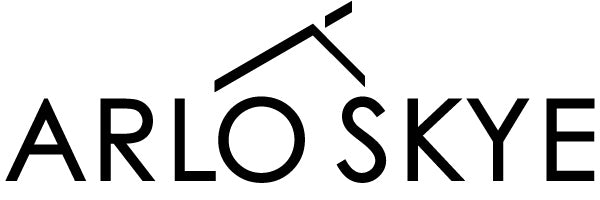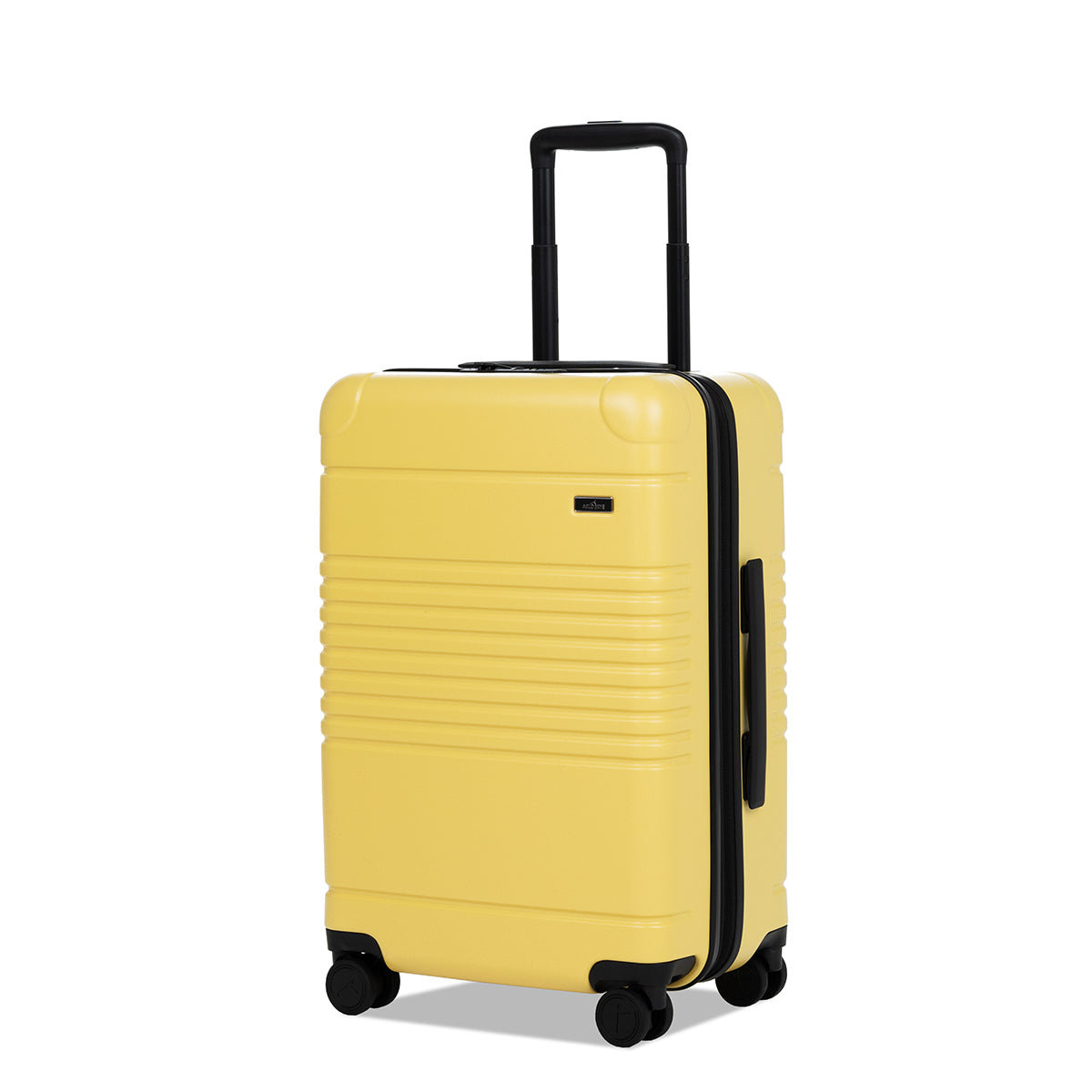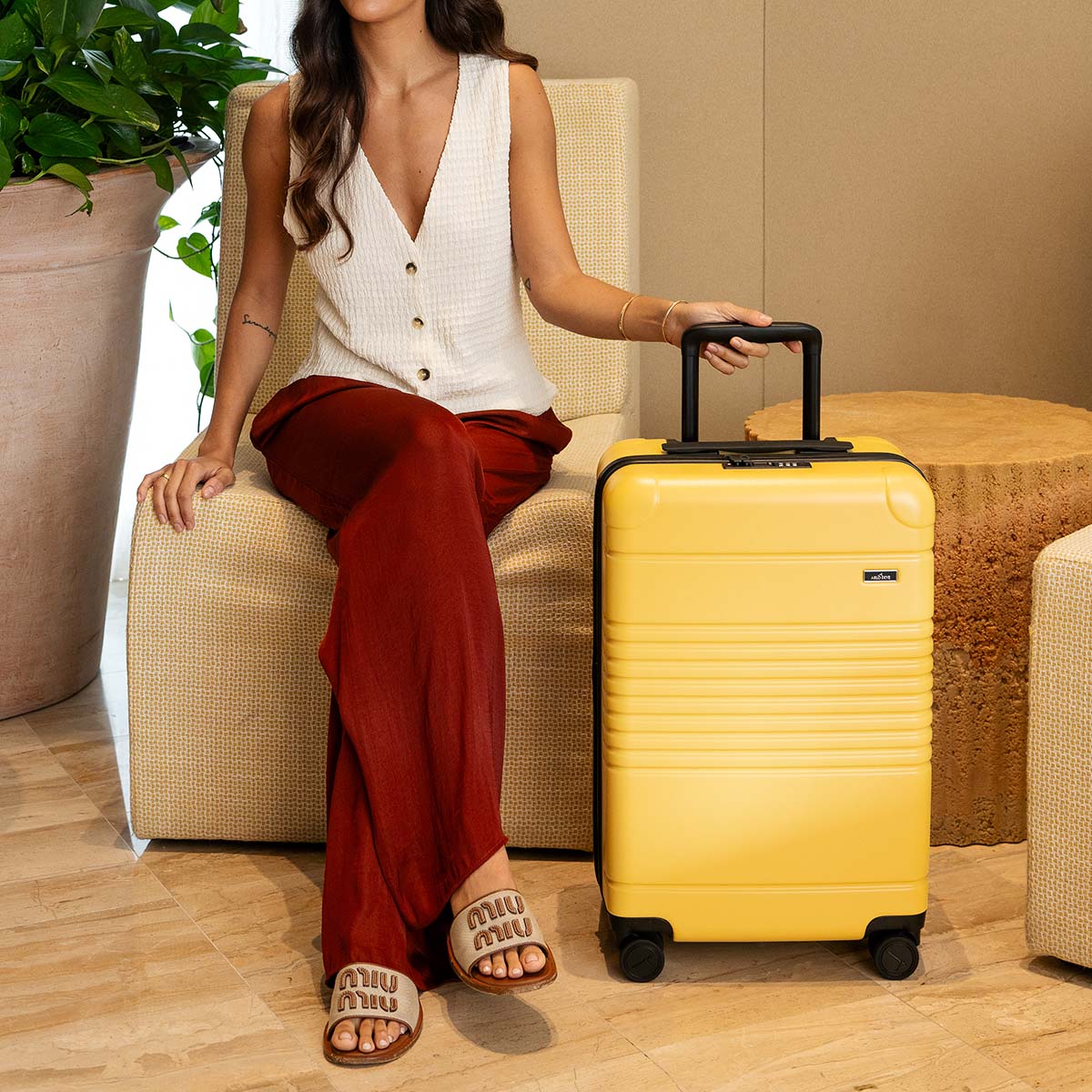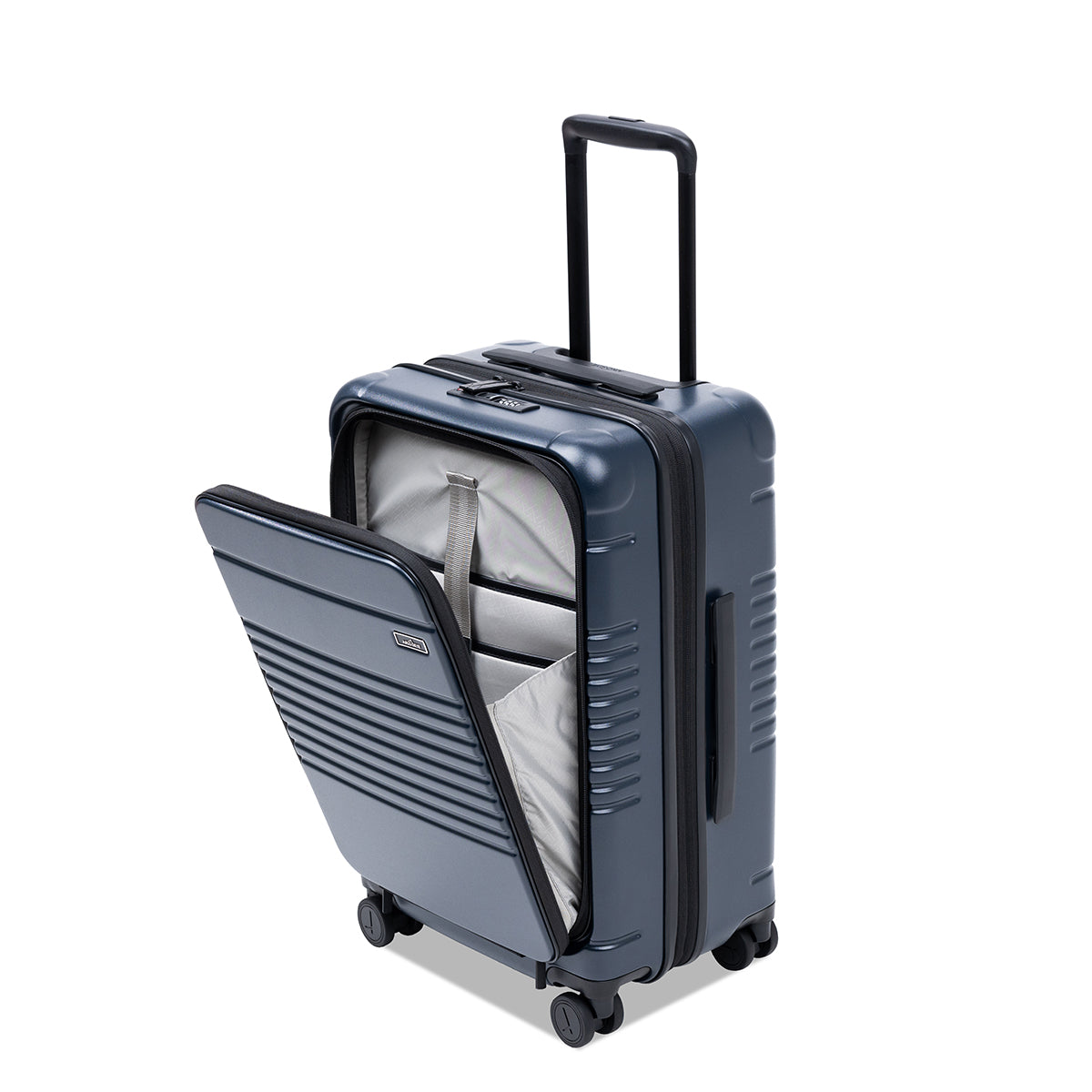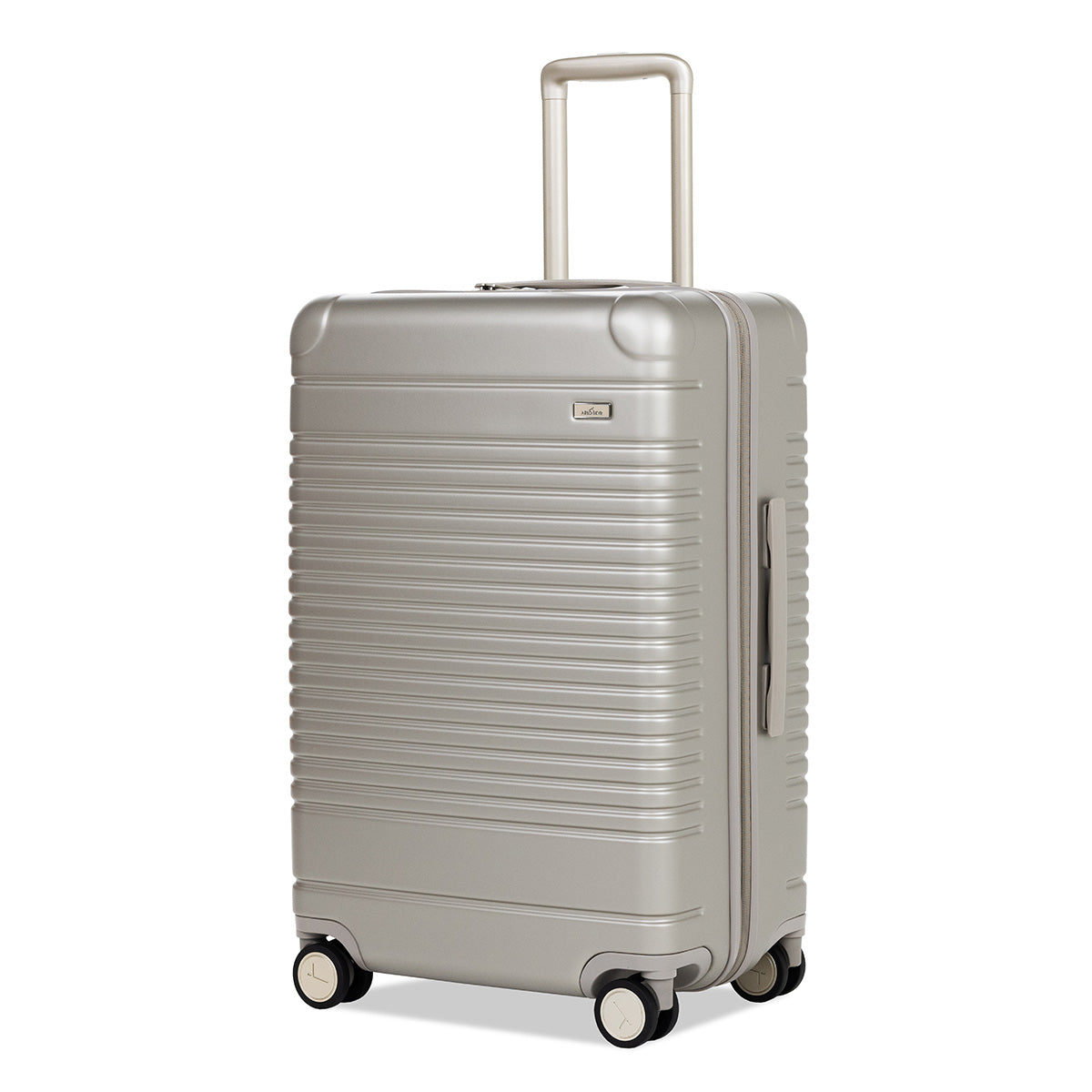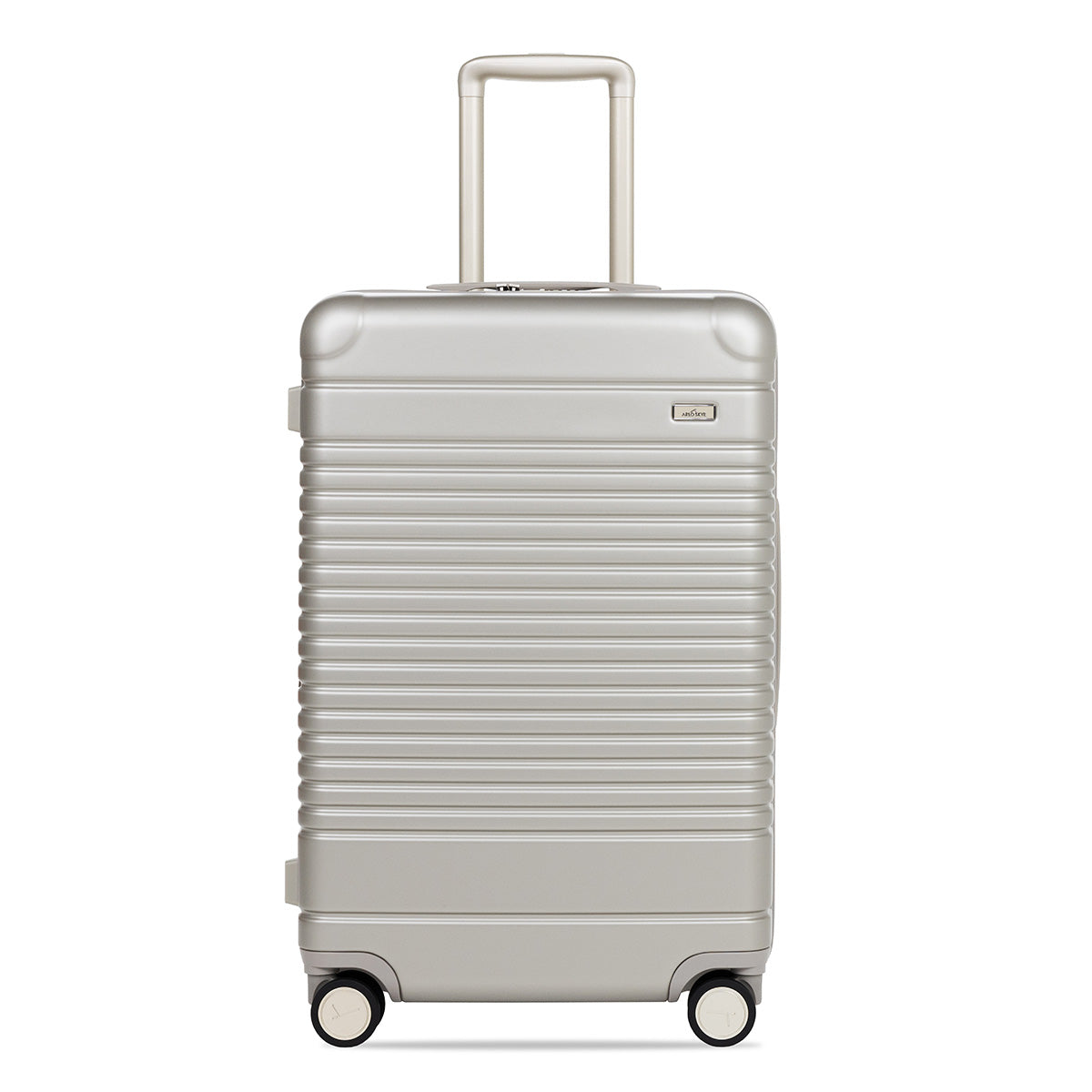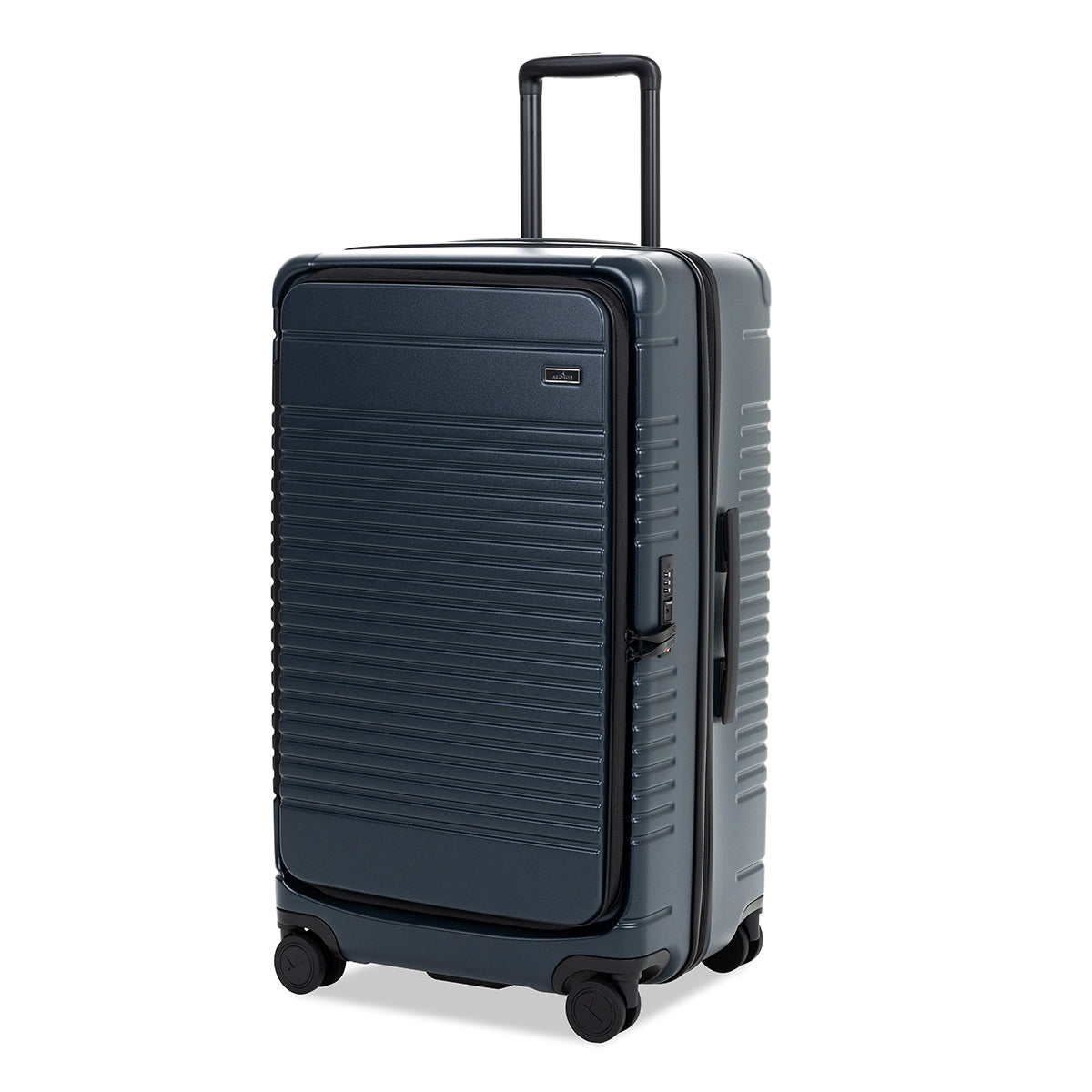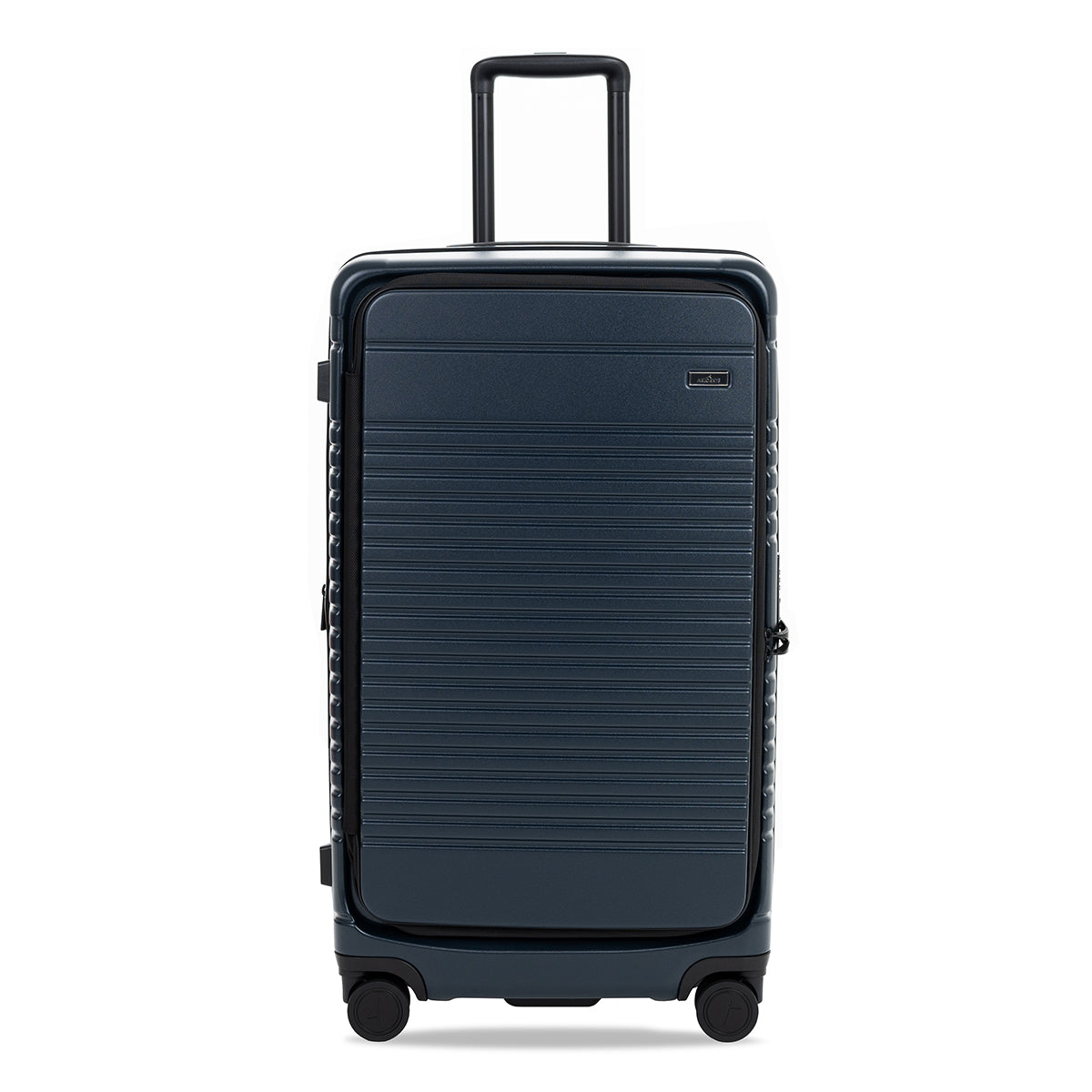Tariffs may sound like a topic best left to trade negotiators and cable news, but in reality, they can quietly nudge your travel budget, your airport haul, or even what shows up on your hotel nightstand. Don’t worry—this isn’t a gloom-fest. Tariffs may be tricky, but with a few clever tips, you can outsmart them with style. Here are 10 real-world ways tariffs could affect your travels—and how to stay savvy, save money, and skip the stress.
Your Luggage Might Cost More—So Shop Now (Seriously)
We’ve always designed luggage to last—and done everything we can to keep prices steady, even as global costs shift. But with tariffs and supply chain pressures building, the truth is: we don’t know where pricing will land in the months ahead.
The good news? You’re early. Right now, we’re running a sale on Arlo Skye travel gear, through Sunday only. It’s probably our last one for a while. So if you’ve had your eye on that Carry-On with the blazing-fast USB-C charger (included, of course), now’s your moment.
Hotel Toiletries Could Shrink
When costs go up, some hotels trim their amenities. So if that conditioner bottle feels like a thimble, it's not your imagination. Bring your own travel-size favorites in a sleek Dopp Kit and skip the hotel roulette. This shrinking of guest perks is often a direct response to rising import tariffs that have significantly increased costs for hotel suppliers. Many toiletry items are manufactured overseas, and as trade taxes climb, hotels face a difficult choice: raise visible room rates or subtly reduce amenity sizes and quality. Most opt for the latter, hoping guests won't notice the difference. The result is that luxury experience you're paying for might come with unexpectedly minimalist bathroom supplies.
Duty-Free Isn’t Always a Deal
Duty-free shops promise savings, but tariffs and global pricing shifts have made those deals less predictable. That luxe fragrance, skincare set, or bottle of whisky might actually cost less online—or even at your local store back home.
Many duty-free prices already include higher base costs or airport markups, and fluctuating exchange rates can quietly chip away at any real savings. Before you splurge at the terminal, do a quick price check online. That “deal” might not be quite as duty-free as it sounds.
Airfare Could Creep Up
If tariffs increase the cost of aircraft parts or maintenance, airlines might quietly pass those costs along. To save, book midweek, fly during shoulder seasons, and set fare alerts. Apps like Hopper or Google Flights are your best friends here. On Google Flights, just search your route, toggle the “Track prices” switch, and you’ll get email updates when fares drop. Hopper does the same with helpful predictions.
Your Favorite Snack Abroad Might Disappear
Imported American treats might quietly vanish from foreign shelves if tariffs spike—or if other countries respond with retaliatory tariffs on iconic U.S. goods. Think bourbon, peanut butter, or your favorite breakfast cereal suddenly becoming rare (or unexpectedly pricey) in Europe or Asia. This commercial chess match can turn comfort foods into luxury items—or make them disappear entirely from some markets. If you're particularly fond of your go-to snack, consider tucking a small amount in your carry-on. (Yes, TSA allows up to 3.4 oz of peanut butter—and no judgment, we get it.)
Souvenirs May Cost More—Or Not
Goods made abroad with imported materials could get pricier thanks to tariffs, especially if they rely on metals, plastics, or textiles. So instead of grabbing that mass-market “I ❤️ Tokyo” keychain at the airport gift shop, go hyper-local. In Japan, that could mean a hand-carved kokeshi doll from a mountain village in Tōhoku, indigo-dyed tenugui cloth from a Kyoto artisan, or a small batch of locally made yuzu marmalade. These are the kind of souvenirs that don’t just survive tariffs—they tell stories. And they look way better in your kitchen or on your shelf than in your junk drawer.
Travel Gadgets Are Sneaky Price Hikers
While your Arlo Skye Carry-On already comes with a charger (you’re welcome), other essentials like noise-canceling headphones or an Apple Watch might get pricier thanks to tariffs on imported electronics. Here’s a smarter move: check your credit card rewards portal. Many travelers rack up points but forget they can be redeemed for travel tech—and unlike retail prices, point values don’t always get adjusted as quickly during tariff hikes. Translation? You might still snag that $300 gadget for last month’s point value. Just move fast—credit card companies will catch on and quietly raise the number of points needed.
Car Rentals Could Get More Expensive
Higher prices on imported car parts may quietly boost rental insurance or base rates. Compare across apps like Kayak or Turo, and always use a credit card that offers built-in rental coverage—that means you can skip the extra collision damage waiver the rental counter tries to upsell you. Just make sure to pay for the rental with that card and decline the rental company’s insurance for it to apply. It’s one of the easiest ways to save money without doing anything extra.
Currency Exchange Rates Can Wiggle
Tariffs can influence the dollar’s strength, which impacts how far your money goes abroad. A quick check of exchange rates before you book can help you choose destinations where your dollar stretches further.
Real talk: six months ago, $1 got you about €0.95. Today, it's closer to €0.92. That might not seem like much, but over a €2,500 vacation, that’s about $80 extra out of pocket. That’s a lot of cappuccinos in Italy—or a few Aperol spritzes with a view.
For on-the-go currency smarts, download the XE app—it’s like having a tiny economist in your pocket.
Travel Insurance = Sanity Insurance
While tariffs themselves won’t cancel your flight, the ripple effects—like airline strikes, supply chain hiccups, or sudden policy shifts—can. A solid travel insurance plan can cover delays, cancellations, missed connections, and even lost baggage if things get messy. It can also reimburse non-refundable hotel bookings or rebooking fees if your plans change last minute due to travel disruptions. In an unpredictable global climate, it’s less of a luxury and more of a smart backup plan. Think of it as the travel version of noise-canceling headphones: peace of mind when the world gets loud.
Bottom Line
Tariffs are part of the modern traveler’s landscape—but they don’t have to derail your next great escape. Plan a little smarter, shop a little earlier (like… now), and keep it light. After all, your passport doesn’t care about trade policy—but your wallet might.
P.S. Did we mention the 25% off Arlo Skye luggage ends Sunday? Just saying. Access code to add at checkout: SPRING25
